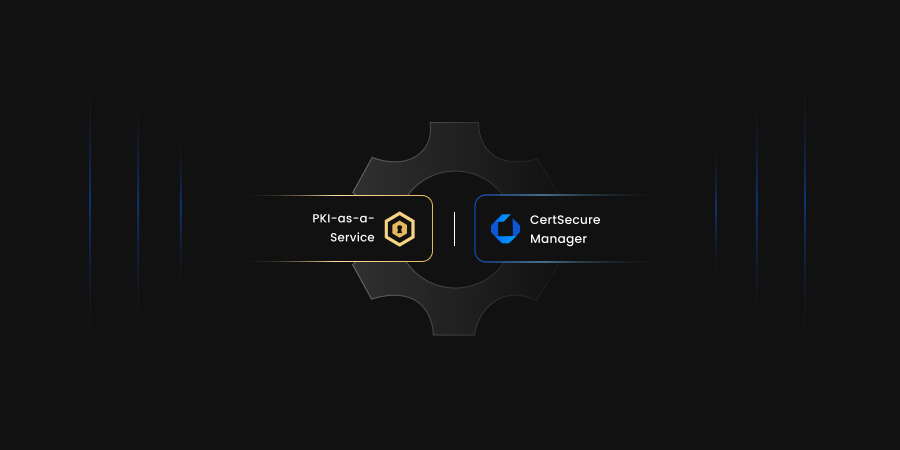The Open Compute Project (OCP) is an initiative founded in 2011 by Facebook, with the goal of revolutionizing the way data centers are built. The project’s core mission is to share designs and best practices for data center hardware that improve efficiency, reliability, and cost-effectiveness. The OCP encourages an open-source approach, where designs for hardware like servers, storage systems, networking components, and other essential infrastructure elements are made publicly available for anyone to use, modify, and improve.
As the project has evolved, it has become a collaborative community, with contributions from major tech companies such as Microsoft, Meta, Google, HPE, and Dell. These companies and others join forces under the OCP umbrella to accelerate innovation and address the growing demands of data center operations in the modern cloud and enterprise environments.
OCP Datacenter NVMe SSD Specification
One of the core areas of focus within OCP is storage. NVMe (Non-Volatile Memory Express) is a storage protocol designed to take full advantage of the speed and low latency of Solid-State Drives (SSDs). When used in data centers, NVMe SSDs are critical for delivering the high-performance storage needed for modern applications that demand rapid access to large volumes of data. “With the growing need for faster, more efficient data storage, NVMe technology is essential for modern data centers to handle the massive amount of data generated in real-time,” states the OCP Storage Group.
The OCP Datacenter NVMe SSD Specification sets the standard for these SSDs, providing guidelines on their design, performance, and compatibility for data center environments. The specification defines key aspects such as:
- Endurance: The number of read/write cycles an SSD can endure, ensuring that it can withstand the demands of high-use data center workloads.
- Performance Metrics: Benchmarks for throughput, latency, and IOPS (Input/Output Operations Per Second), ensuring that NVMe SSDs meet the high-performance needs of hyperscale data centers.
- Form Factor: Physical attributes, such as size and connectivity, to ensure compatibility with a variety of server systems.
- Reliability: Data protection measures, including error correction, wear leveling, and power loss protection to ensure continuous and safe operation.
Industry Collaboration and the Importance of Compliance
The OCP Datacenter NVMe SSD Specification facilitates alignment between hyperscale companies and SSD manufacturers, creating a standardized set of expectations. This is crucial because, in the absence of such standards, data centers could face significant integration challenges, increased costs, and delays in deployment. According to the OCP, “The collaboration between industry leaders ensures that all players — from manufacturers to cloud providers are working off the same blueprint, driving faster innovation and higher quality.”
The Benefits of Compliance with OCP Specifications
Let’s break down the benefits of compliance with OCP specifications.
- Efficiency in SSD Development: OCP provides a clear set of rules for designing SSDs. This helps manufacturers work more efficiently and save time and money when making new products. As a result, products can be made and delivered to the market faster.
- Cost Savings: By using the same technology and standards across different companies, manufacturers can save money. These savings can then be passed on to their customers. Hyperscale companies (big data center operators) save a lot by avoiding the need to create custom, expensive solutions.
- Improved Product Quality: When manufacturers follow OCP standards, they ensure their SSDs perform well and are reliable. This reduces the risk of failure, especially in busy data center environments where high performance is essential.
- Faster Time-to-Market: Since OCP standards are already set, companies don’t have to go through the long and costly process of getting products individually certified. This allows them to release new products much more quickly.
- Innovation and Flexibility: Even though OCP encourages standardization, it still allows companies to innovate and improve within the given framework. This means that companies can come up with new ideas while making sure their products are still reliable and compatible with the rest of the industry.
How OCP 2.6 Benefits Data Centers?
- High-Performance Storage: The primary benefit of OCP 2.6-compliant NVMe SSDs is the high performance they provide. With low latency and high throughput, these SSDs are ideal for the massive data needs of modern hyperscale data centers that need to handle large volumes of data with minimal delays. “OCP 2.6 drives have been optimized to meet the speed and performance demands of data centers supporting AI, machine learning, and cloud computing,” states an expert from Google Cloud.
- Better Scalability: OCP-compliant SSDs are designed to work seamlessly across multiple environments, supporting scalable storage solutions that can grow as data needs increase. “The scalability provided by OCP 2.6 is essential for organizations that require continuous growth in storage capacity without sacrificing performance,” says a representative from Intel.
- Future-Proofing: As the industry moves toward more sophisticated storage technologies, OCP 2.6 ensures that data centers are equipped to handle future workloads by standardizing components that can support newer, faster storage protocols and features. “By aligning with OCP 2.6, data centers are prepared for the next generation of storage technology,” adds a senior engineer at NVIDIA.
Role of PKI in OCP
The importance of Public Key Infrastructure (PKI) in OCP environments cannot be overstated. As OCP promotes open-source hardware and standardized designs for data centers, PKI provides the foundation for security. In OCP’s open-source model, devices and services often come from various manufacturers and sources. PKI establishes trust by ensuring that each device and service is verified before it can join the network or communicate with other components.
Public Key Infrastructure (PKI) plays a critical role in securing communication and data within the Open Compute Project (OCP), especially when dealing with the large-scale, open-source hardware and software solutions that OCP promotes for data centers. PKI is a security framework that relies on cryptographic keys to encrypt data, authenticate users, and ensure data integrity. In OCP environments, PKI provides trust and security across various components like servers, storage devices, networking equipment, and cloud services.
In the context of OCP, where data centers often scale rapidly, maintaining a secure infrastructure is vital. PKI ensures that only authorized devices and users can access the system, preventing unauthorized access and data breaches. With the open nature of OCP, it is especially important to establish a trusted environment where every device is properly authenticated, and communications are secure.
Building PKI with OCP in Mind
When building a PKI system for OCP environments, there are several steps to consider:
- Define Certificate Authority (CA): The first step in implementing PKI is to establish a Certificate Authority (CA), which is responsible for issuing and managing digital certificates. These certificates authenticate devices and users, ensuring that only trusted parties can access sensitive systems. In OCP, where many devices may be connected and disconnected frequently, establishing a central CA is vital for maintaining security.
- Automate Certificate Management: Given the scale of OCP data centers, automating certificate management is crucial. Devices and services may join or leave the network at any time. PKI solutions should be automated to handle the issuance, renewal, and revocation of certificates. Automated certificate management ensures certificates are always valid, minimizing the risk of security breaches due to expired certificates or human error.
- Integrate PKI with OCP Hardware: In the OCP ecosystem, hardware is standardized and open, meaning PKI needs to integrate seamlessly with these devices. For example, devices like NVMe SSDs and servers should be equipped to request, store, and use certificates automatically upon connection. This integration ensures that hardware components can communicate securely and that any new device added to the network is authenticated and trusted.
- Use Strong Encryption Algorithms: To maintain the integrity of PKI, strong encryption is required. Algorithms such as RSA, ECC (Elliptic Curve Cryptography), and AES should be used to ensure that data is securely transmitted and stored. This ensures the privacy and security of sensitive information across all devices and systems in the OCP data center.
- Integrate Post-Quantum Cryptography (PQC): As the computing power of quantum computers grows, traditional encryption algorithms like RSA and ECC will become vulnerable. Post-Quantum Cryptography (PQC) offers quantum-resistant algorithms that will be essential to protecting data and ensuring security in a post-quantum world. Integrating PQC into the PKI system for OCP ensures long-term security by preparing the infrastructure for the future of encryption. Algorithms like Lattice-based cryptography and Hash-based signatures are being researched as potential candidates to replace current cryptographic systems, ensuring that OCP data centers are ready to handle future threats from quantum computing.
- Monitor and Audit: PKI setups require continuous monitoring and auditing to ensure that the infrastructure remains secure. In an open-source OCP environment, it’s important to track and review access logs and certificate usage regularly. This helps identify and mitigate any potential security threats before they cause damage.
How Encryption Consulting can help?
At Encryption Consulting, we don’t just talk about standards, we build systems that put them into practice. Whether you’re deploying Microsoft ADCS, leveraging cloud-based CAs like AWS Private CA or Azure Key Vault, using open-source solutions like EJBCA, or adopting our PKI-as-a-Service platform, we ensure your revocation infrastructure is secure and reliable. We design systems that deliver signed revocation data over HTTP without breaking validation, implement high-availability OCSP and CRL responders, and integrate revocation checks into CI/CD pipelines and Zero Trust environments. Our CertSecure Manager platform automates certificate lifecycle management, ensuring your operations run smoothly. Most importantly, we help you avoid circular trust loops by carefully validating any HTTPS endpoints independently.
Conclusion
In conclusion, PKI is essential for ensuring the security and trustworthiness of OCP environments. By providing authentication and encryption, PKI helps protect sensitive data and ensures that only authorized users and devices can access critical systems. Building a PKI system with OCP in mind means automating certificate management, integrating with OCP hardware, and using strong encryption methods. This approach not only secures the environment but also ensures that OCP’s open-source hardware can scale effectively while maintaining high levels of security.




